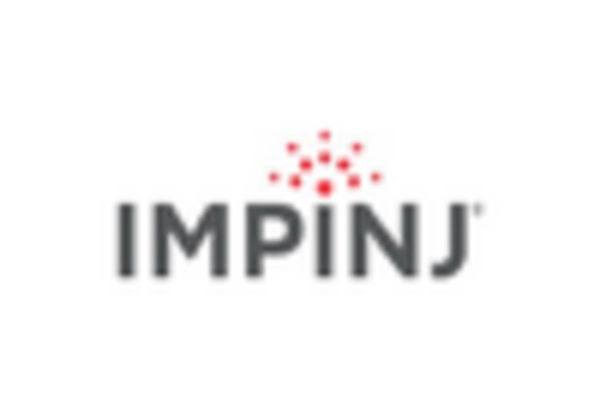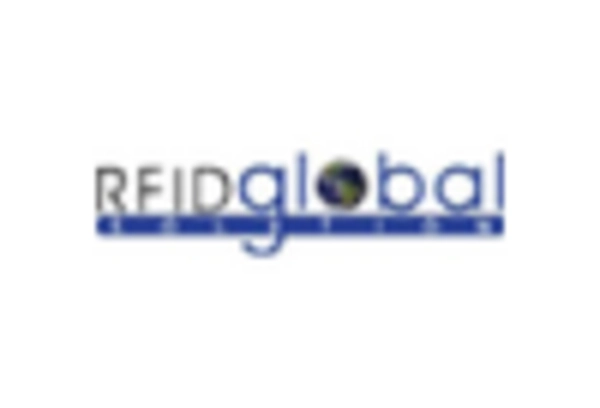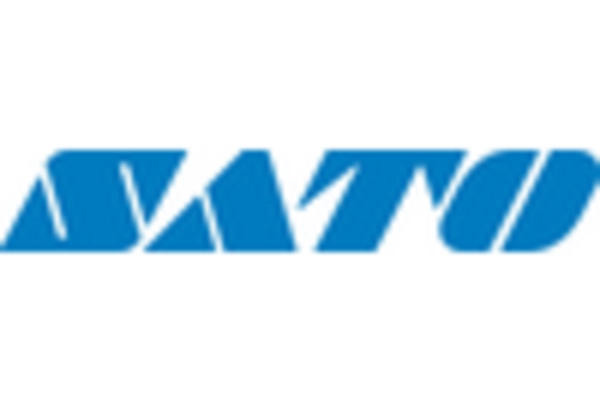Growing E-commerce Sector
The rapid expansion of the e-commerce sector is a significant driver for the Asset Tracking Inventory Management Market. As online shopping continues to gain traction, businesses are increasingly challenged to manage their inventory effectively to meet customer expectations for fast delivery and accurate order fulfillment. The e-commerce industry is projected to grow at a rate of over 20% annually, necessitating advanced inventory management solutions. Companies are investing in asset tracking technologies to ensure they can efficiently manage stock levels and streamline logistics. This trend is likely to bolster the Asset Tracking Inventory Management Market as businesses seek to enhance their operational capabilities in response to the demands of the e-commerce landscape.
Advancements in RFID Technology
Advancements in Radio Frequency Identification (RFID) technology are significantly influencing the Asset Tracking Inventory Management Market. RFID systems enable automatic identification and tracking of inventory items, which enhances accuracy and efficiency. The market for RFID technology is projected to grow at a compound annual growth rate of approximately 14% over the next five years. This growth is attributed to the increasing adoption of RFID in various sectors, including retail, healthcare, and manufacturing. As businesses seek to streamline their inventory processes and minimize errors, the integration of RFID technology into asset tracking solutions is becoming increasingly prevalent, thereby driving the Asset Tracking Inventory Management Market.
Rising Demand for Real-Time Data
The increasing need for real-time data in inventory management is a pivotal driver for the Asset Tracking Inventory Management Market. Businesses are recognizing the importance of having immediate access to inventory levels, locations, and conditions. This demand is fueled by the necessity to enhance operational efficiency and reduce costs. According to recent estimates, companies that implement real-time tracking solutions can reduce inventory holding costs by up to 30%. As organizations strive for greater transparency and responsiveness, the Asset Tracking Inventory Management Market is likely to witness substantial growth, with more firms investing in advanced tracking technologies to meet these demands.
Regulatory Compliance and Standards
Regulatory compliance and adherence to industry standards are becoming increasingly important in the Asset Tracking Inventory Management Market. Many sectors, such as pharmaceuticals and food and beverage, are subject to stringent regulations regarding inventory tracking and management. Compliance with these regulations often necessitates the implementation of robust asset tracking systems. As companies strive to meet these regulatory requirements, the demand for sophisticated inventory management solutions is expected to rise. This trend not only enhances operational efficiency but also mitigates risks associated with non-compliance, thereby driving growth in the Asset Tracking Inventory Management Market.
Increased Focus on Supply Chain Optimization
The heightened focus on supply chain optimization is a crucial driver for the Asset Tracking Inventory Management Market. Companies are increasingly aware that efficient inventory management is integral to overall supply chain performance. By utilizing asset tracking solutions, organizations can achieve better visibility and control over their inventory, leading to improved decision-making and reduced lead times. Recent studies indicate that businesses that optimize their supply chains can enhance their profitability by up to 15%. This trend is likely to propel the Asset Tracking Inventory Management Market as firms invest in technologies that facilitate better inventory management and supply chain efficiency.















